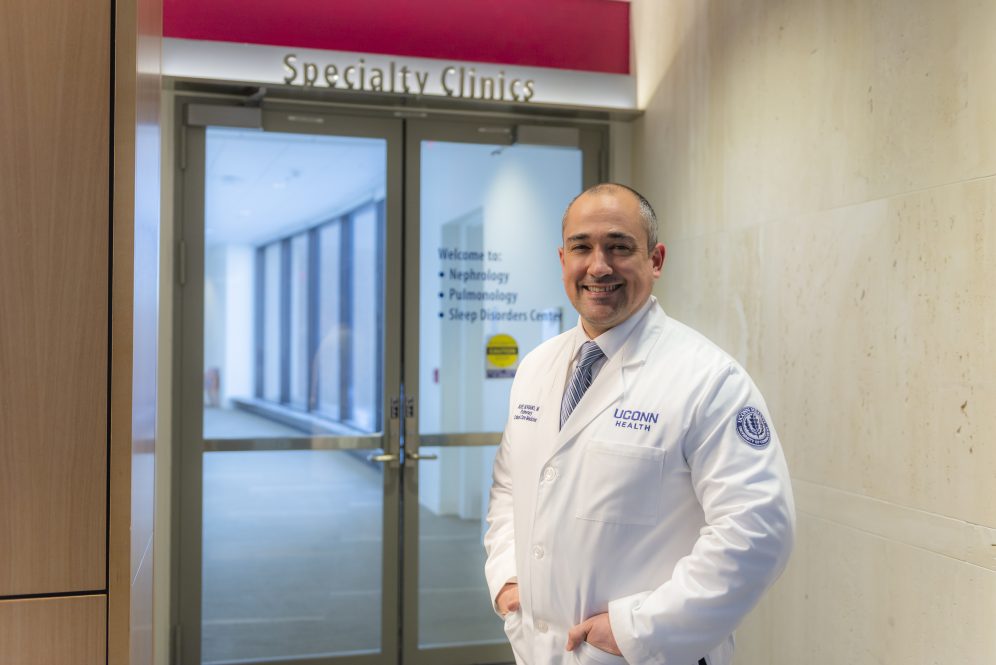Part of what shaped Dr. Jose Soriano’s path to the intensive care unit is his experience there — not as a physician but as a husband holding his wife’s hand while she was on life support.
Soriano already had a personal motivating factor to eventually pursue pulmonary medicine, and his final days with his wife, Nina, solidified his interest in critical care, particularly its palliative and family aspects.
“The nurses especially contributed so much and were so comforting in a time where I forgot all the medicine I ever knew,” Soriano says. “I learned a lot about how important palliative care is, not only for the patient but also for the family members, because ultimately the family members are also our patients.”
Soriano’s perspective is fitting for a setting like an ICU, where during a time of heavy visitor restrictions, family members may not get the chance to hold their loved one’s hand while saying goodbye.
“Most of the time, when the family members come in, they’re able to at least get that psychological comfort, they can touch their loved one,” Soriano says. “But with Covid, they couldn’t. That’s really tough.”
During his second year as a medical student at St. George’s University in Grenada, Soriano’s grandmother was diagnosed with pulmonary fibrosis, a disease characterized by damaged and scarred lung tissue. During the progression of both her disease and his medical training, he became more familiar with this and other types of what is known as interstitial lung disease, today his primary area of expertise.
“At that point was when I said I really want to do pulmonary medicine, because I want to see what I can contribute to help people or family members so that they don’t have to go through what I went through, seeing my grandmother, who was like my second mom, pass away in our home from respiratory failure,” Soriano says.
That was in 2010, as he was finishing his internal medicine residency training at UConn Health. He went into practice as a hospitalist, with an eye toward future training in pulmonary medicine. In 2017 he returned to UConn to stay, first for a pulmonary critical care fellowship, then as a member of the pulmonary medicine faculty starting last year.
“What really made me want to stay as faculty here was that I had such a positive experience,” Soriano says. “The attendings took so much time and they put so much effort into my education so that I can be the best pulmonologist that I could.”
And he’s looking forward to passing that to the trainees he now mentors.
“I always believe that you can find a teaching point, and like one of my old mentors would say, every patient is a textbook chapter,” Soriano says. “No matter what you think you know, you can learn so much from a patient.”
This story originally appeared in the Spring 2021 issue of UConn Health Journal.



